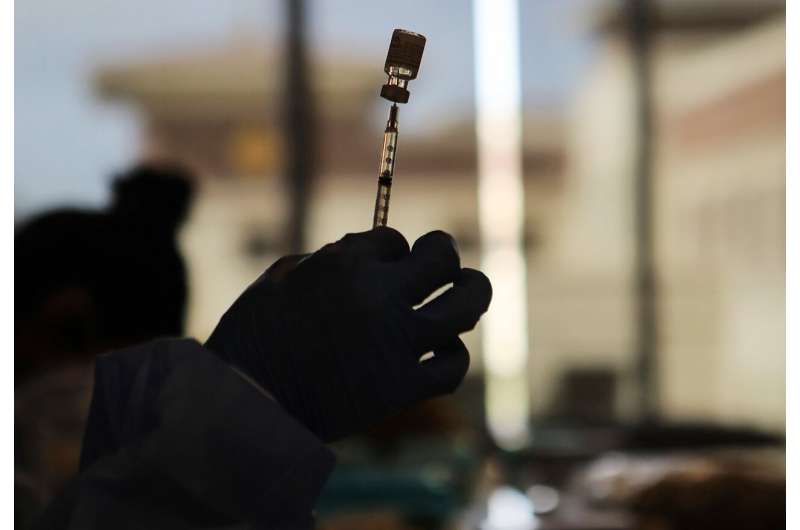This article has been reviewed according to Science X's editorial process and policies. Editors have highlighted the following attributes while ensuring the content's credibility:
fact-checked
peer-reviewed publication
trusted source
proofread
Extroverts more likely to resist vaccines, study shows

Which types of personalities were more hesitant about COVID-19 vaccination during the pandemic's peak? Extroverts—according to a new study on more than 40,000 Canadians.
"We expected that people who were especially high in extroversion would be more likely to get the vaccine," said Melissa Baker, Ph.D., lead author and assistant professor at The University of Texas at El Paso. "We figured those people would want to get back out in the world and socialize, right? It's actually the opposite."
The findings, published in the journal Frontiers in Psychology, can help with future public health messaging and vaccination campaigns, according to the team of scientists, based at UTEP and the University of Toronto. It also offers a unique perspective in vaccine hesitancy research, a field that has largely focused on political affiliation.
"We wanted to look at vaccine hesitancy a different way," Baker said. "Of course, politics can help explain some of it, but there are personal differences between people, too—and that led us to this personality aspect."
The study is based on surveys of more than 40,000 Canadian adults, taken between November 2020 and July 2021. Online questions evaluated each participant's personality, based on a model known as "big five," which gauges an individual's openness, conscientiousness, extraversion, agreeableness and emotional stability.
Additional questions probed how respondents felt about vaccination. One question, for example, asked, "When a COVID-19 vaccine becomes available, will you be vaccinated?" As the vaccine rollout began, questions were altered to reflect their availability.
Most of the team's hypotheses were supported. For instance, people who were more open and agreeable were more likely to get the vaccine.
"Those are the kind of people who are open to new things, new information and just like to go with the flow," Baker said. "We also expected that for people with high conscientious because they are detail-oriented and big planners."
On the other hand, those with low emotional stability—or those who experience extreme emotions—were less likely to be vaccinated. And extroverts, to their surprise, were 18 percent more likely to refuse the vaccine.
While the pandemic is over, the team said the findings could help with future public health messaging strategies for vaccination from various diseases, not just COVID-19.
Baker explained, "If we know you need to reach a certain type of personality, we can think about the message that will actually reach and persuade that person."
More information: Melissa N. Baker et al, Dynamic role of personality in explaining COVID-19 vaccine hesitancy and refusal, Frontiers in Psychology (2023). DOI: 10.3389/fpsyg.2023.1163570




















